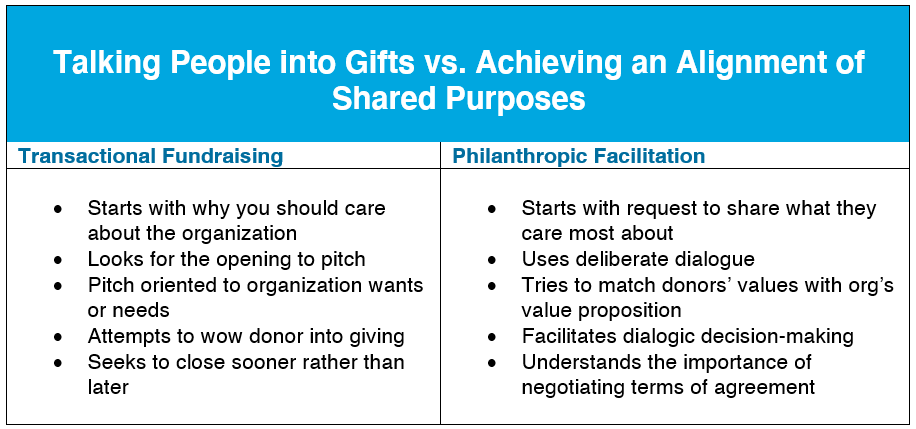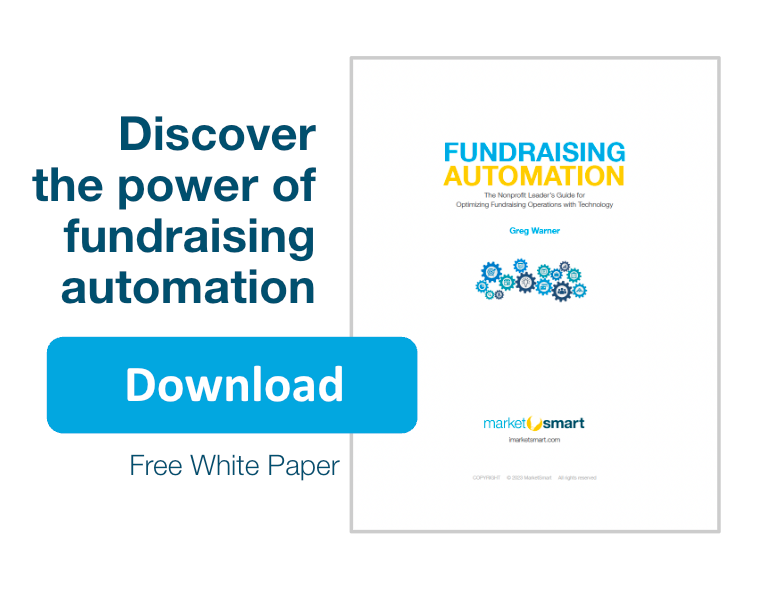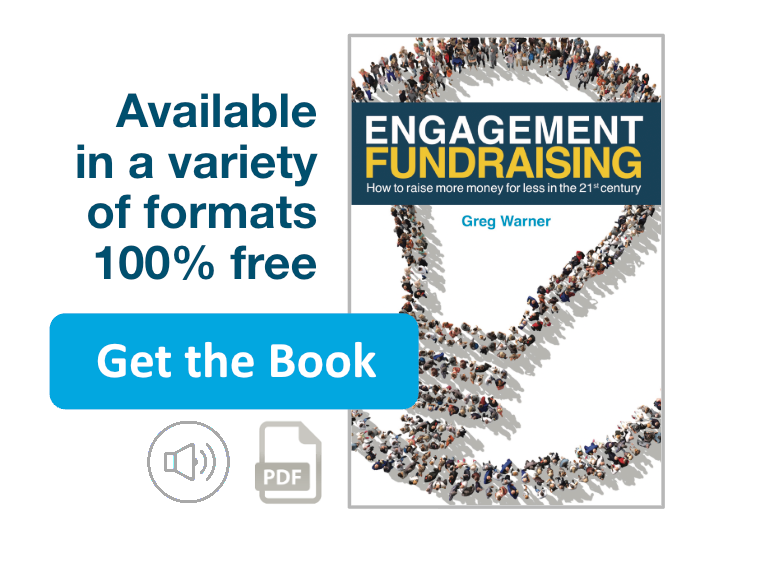The two most important words in philanthropic facilitation are, “Because you”.
As in:
“Because you have such a vested interest in the empowerment of girls …”
“Because you are so committed to helping your fellow veterans…”
“Because you have such a passion for musical excellence…”
“Because you have been so dedicated to breaking the grip of this disease…”
“Because you” is such an important phrase because it shows you listened, came to understand your donors’ animating passions, and are now coming back to them with a concept that has a strong chance of resonating with their deepest purposes. You are coming back to test a potential alignment with what they care most about and what your organization can do well and wants to do better (either through improved service and/or to provide that service to more people).
You show you are a philanthropic facilitator through unconditional listening. You listen and you reflect. If you see a potential alignment of interests, you request to come back. You begin the test by saying, “Because you…” Philanthropic facilitation flows from there.
THE MOST SUCCESSFUL PHILANTHROPIC FACILITATORS DON’T TALK PEOPLE INTO GIFTS, THEY INTERVIEW THEM INTO STRONG ALIGNMENT OF SHARED PURPOSE.
The original meaning of interview is “to see one another.” If we really see where the other stands, we can develop authentic, respectful, resilient philanthropic partnerships.
Philanthropic facilitation is deliberate. Deliberate is defined as:
“Done consciously and intentionally; fully considered; not impulsive.”
Transactional fundraising is impulsive and rooted in an irrational organizational compulsion for more. Philanthropic facilitation is deliberate and driven by a shared to desire to better our community or our world.

Jim Langley is the president of Langley Innovations. Langley Innovations provides a range of services to its clients to help them understand the cultural underpinnings of philanthropy and the psychology of donors and, with that knowledge, to develop the most effective strategies and tactics to build broader and more lasting communities of support. Jim has authored numerous books including his most recent book, The Future of Fundraising: Adapting to New Philanthropic Realities, published by Academic Impressions in 2020.
Related Resources:
- Webinar: 4-Step Process for “Reimagining Fundraising Operations”
- The Power of Building Relationships: Why Donors Need Good Fundraisers
- Planting Seeds: The Step Before Cultivation
- The Tragedy of Transactional Fundraising




